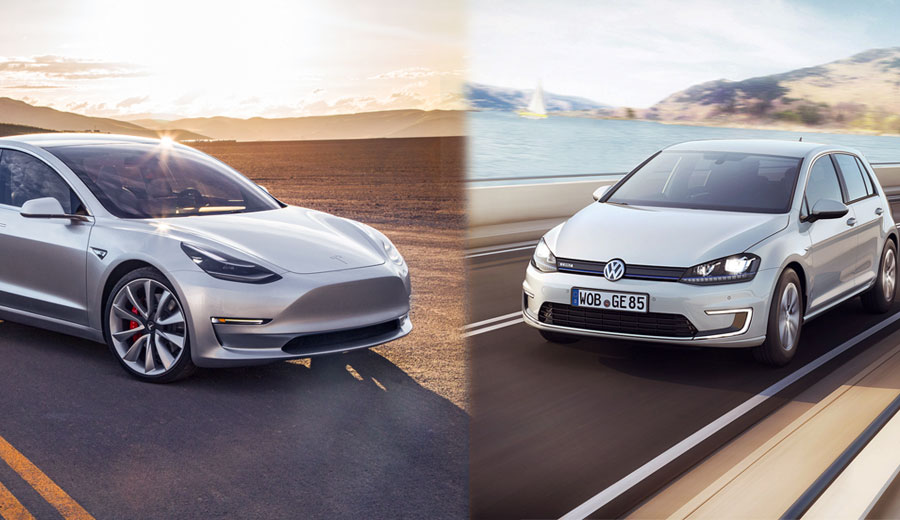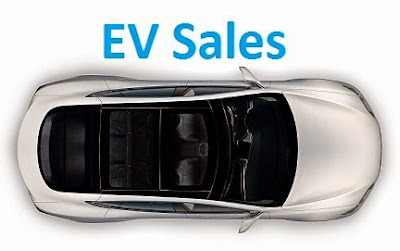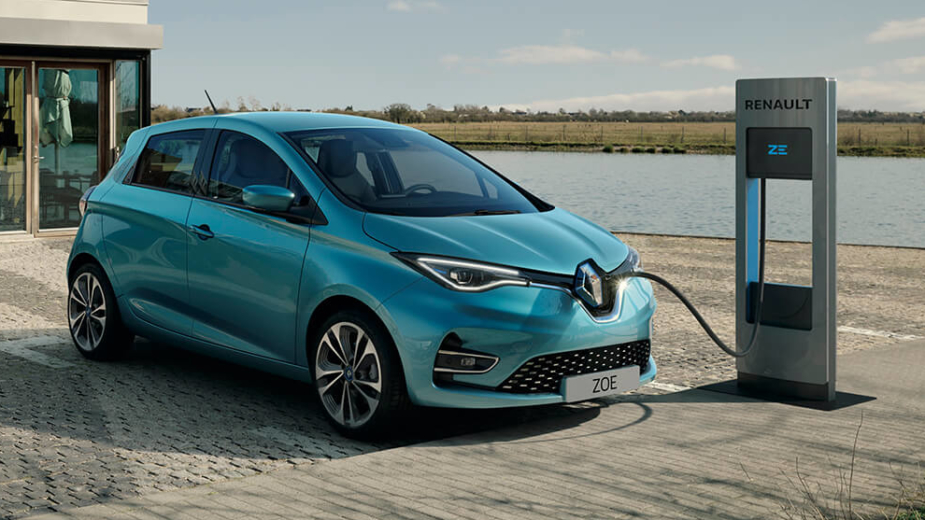
Models: Tesla Model 3 and VW e-Golf shine
After several months in the red, registrations in February finally surpassed the same month last year, growing 16% YoY, to over 116.000 units.
This allowed the YTD numbers to be back in black (+2%), with 268.000 deliveries, but this ray of light shouldn't last for long, because the current Coronavírus pandemic is sure to drag sales down to a hole, but for now, things aren't that bad, with the February PEV share at 1,6%, dragging the 2020 plugin share to 1,8%.
BEVs grew faster than the plugin average, allowing them to have 64% of the market (62% YTD), but this is still far from the 74% share of last year.
With March promising to be still an ok-month in several markets, a global 2% score can still be achieved next month.
With the Chinese EV market slowing down significantly in February, the highest standing Chinese EV is now the #14 GAC Aion S, the Tesla Model 3 secured its natural place last month, by winning a 6.000 advance over the #2 Renault Zoe, but the highlight of the month was the VW e-Golf, that jumped 4 positions to 4th, thanks to a record 4.093 units.
This kind of performances from the veteran e-Golf bode well for the upcoming VW ID.3 career, with the future VW blockbuster set to become a familiar face in the monthly podiums. Once it officially lands of course...Whenever that is...But i digress, back to last month Best Sellers.
Other models on the rise are the Mitsubishi Outlander PHEV, now #5 and succeeding the BMW 530e/Le in the PHEV leadership, while the Peugeot 208 EV also climbed one position, to #6.
The Audi e-Tron continues to climb positions, it is now #8, and has its eyes set on the #7 BMW 530e/Le, just 511 units ahead, so we might see it become the Best Selling Luxury plugin next month...The German Crossover career proves that Tesla products are not unbeatable, if Legacy OEMs provide EVs that are minimally competitive, like the e-Tron, then they too can sell in large amounts, it's just a matter of having the right product and knowing how to market it.
"Build them and they will come" - as they say.
As for the remaining ranking, the Hyundai Kona EV jumped three positions to #9, while the rise and rise of the Volvo XC60 PHEV continues, now in #12, while the BMW i3 climbed to #15.
Finally, a mention to the Kia Niro EV, that joined the table in #17, thanks to 2.208 units, its best score since last May.
Outside the Top 20, a mention for the Volvo S/V60 PHEV twins, with 1.925 registrations, while the VW e-Up! scored a record 1.542 units, so we could see them soon in the table.
Manufacturers: Tesla climbs to #1
February saw Tesla climb to the leadership, while Volkswagen continues to impress, climbing last month to #3.
In fact, the whole Volkswagen Group is putting on a strong show, with 4 brands(!) in the Top 20, besides the #3 Volkswagen, we have Audi in #11, Porsche in #18 and in #19 we have Skoda...Allowing them to have 14% share of the market the same that the Renault-Nissan Alliance has.
And Seat still hasn't the Leon PHEV in production, or else we could even have 5 brands here...
Looking elsewhere, Nissan jumped to #6, while Volvo was up two spots, to #7, thanks to 5.994 units, its third(!) record performance in a row. And with the XC40 PHEV just starting its career, the Swedish automaker can even climb higher...
Closing the Top 10, we now have Kia, while Mitsubishi (#13) and Mercedes (#14) climbed positions, with the German maker performance being particularly important, as the Three Pointed Star production ramp up is finally picking up pace.









